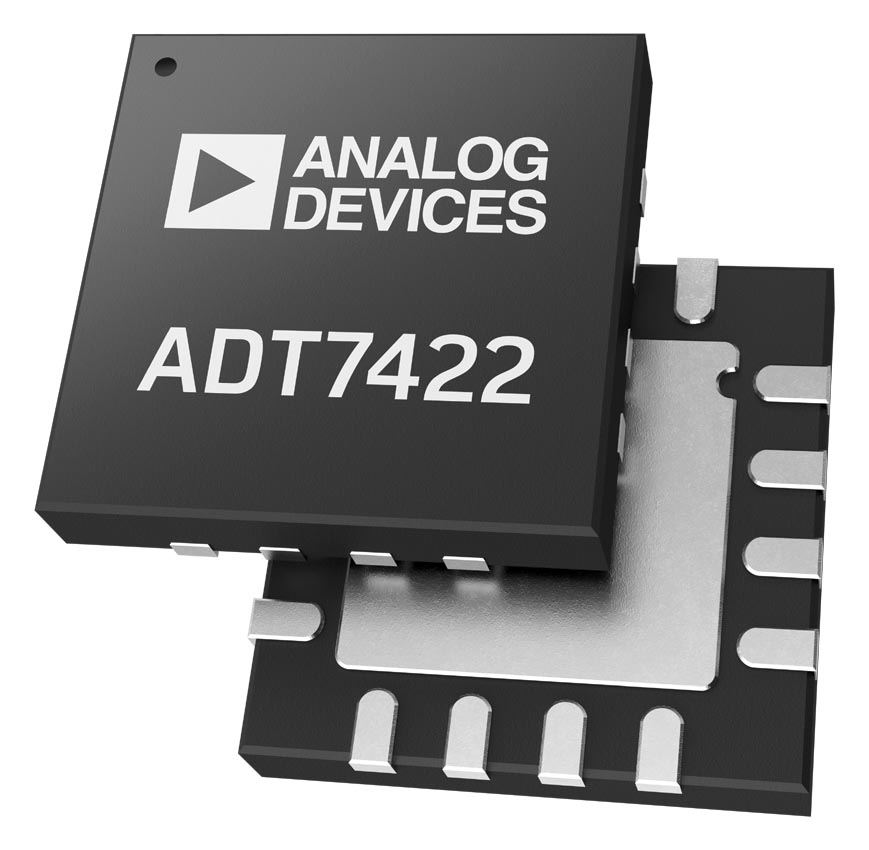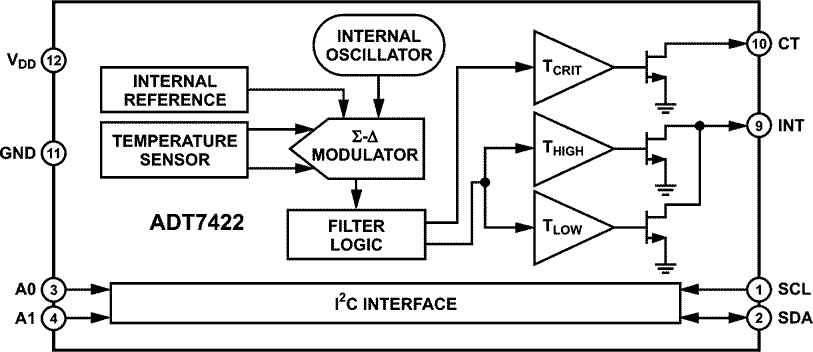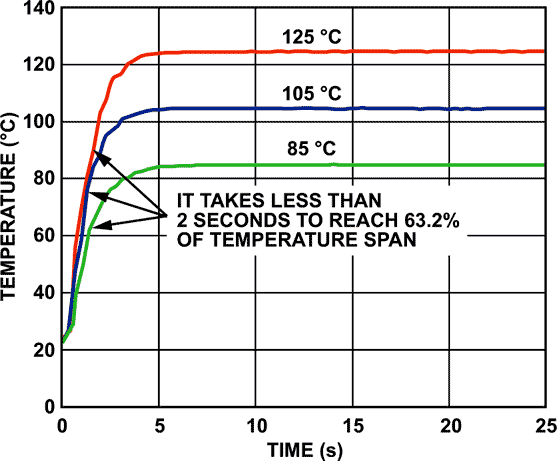Analog Devices has developed a high accuracy, digital I2C temperature sensor ADT7422 designed to meet the clinical thermometry specification of the ASTM E1112 standards when soldered onto the final printed circuit board (PCB).

The ADT7422 contains an internal band gap reference, a temperature sensor, and a precision analog-to-digital converter (ADC). The ADT7422 provides a 16-bit temperature result with a resolution of 0.0078 °C and an accuracy of up to ±0.10 °C across the temperature range of 25 °C to 50 °C without the need for calibration after the PCB soldering process.
 |
| Functional Block Diagram. |
Operating at 3.0 V, the average supply current is typically 210 μA. The ADT7422 has a shutdown mode that powers down the device and offers a shutdown current of typically 2.0 μA at 3.0 V. The ADT7422 is rated for operation over the –40 °C to +125 °C temperature range.
 |
| Thermal Response Time for Various Temperatures. |
Pin A0 and Pin A1 are available for address selection and provide four possible I2C addresses for the ADT7422. The CT pin is an open-drain output that becomes active when the temperature exceeds a programmable critical temperature limit. The INT pin is also an open-drain output that becomes active when the temperature exceeds a programmable limit. The INT pin and CT pin can operate in comparator and interrupt event modes.
Product highlights
- No calibration or correction required by the user.
- Low power consumption.
- Long-term stability and reliability.
- High accuracy for industrial, instrumentation, and medical applications.
Features
- Accuracy meets clinical thermometry specification of the ASTM E1112 when soldered onto the final PCB
- ±0.10 °C from 25 °C to 50 °C at 3.0 V
- ±0.25 °C from –20 °C to +105 °C at 2.7 V to 3.3 V
- Ultralow temperature drift: 0.0073 °C
- National Institute of Standards and Technology (NIST) traceable or equivalent
- Fast first temperature conversion at power-up of 6 ms
- Simple implementation
- No temperature calibration or correction required
- No linearity correction required
- Low power
- 140 μW typical at 3.0 V in 1 SPS mode
- 6 μW typical at 3.0 V in shutdown mode
- Programmable interrupts
- Critical overtemperature interrupt
- Overtemperature and undertemperature interrupt
- I2C-compatible interface
- 16-lead, 4 mm × 4 mm, RoHS compliant LFCSP
Applications
- Vital signs monitoring (VSM) Medical equipment
- Resistance temperature detector (RTD) and thermistor replacement
- Food transportation and storage
- Thermocouple cold junction compensation
- Environmental monitoring and heating, ventilation, and air conditioning (HVAC)
- Laser diode temperature control